|
Scripture Readings: Deuteronomy 18:15–20 | Psalm 111 | 1 Corinthians 8:1–13 | Mark 1:21–28
Knowledge puffs up, but love builds up. Anyone who claims to know something does not yet have the necessary knowledge; but anyone who loves God is known by him. (1 Cor. 8:1-3) As a child I was, for the most part at least, a well-behaved student at school. I would never dream of being intentionally disruptive. I was not rude, and I’d usually try my best to pay attention to the lesson. But there was one way I found myself consistently struggling: I had a really hard time, it seems, not shouting out the answers. Raising my hand and waiting my turn did not come very naturally for me. If I knew the answer, or thought I knew the answer, I’d want to let you know. Eventually I gained a little humility and self-control, and as I grew up a bit I discovered how to be a better student; how to learn, not just the answers, but how to learn alongside others. How to wait, and listen, and leave room for those around me to share. This struggle of my young student days is a fairly simple one; born of my immaturity, and eventually grown out of. But it highlights a more widespread temptation that many today find hard to resist: There is something enticing about knowing ‘the answers’… and showing that you know can be even more alluring, especially in a world that believes knowledge is power. We can find all sorts of examples of this temptation at work today: from those touting the ‘secret insights’ of dark conspiracy theories… to those who shame and despise anyone not ‘up to date’ with the latest edition of what’s politically correct, and what’s not… to those who are always hungry for some juicy bit of gossip, tearing their neighbour’s life apart, all for the ‘inside scoop’. Of course, this is just a sample. But what all these examples have in common is their great potential to cause distrust, division, and destruction… of communities, relationships, and individual lives. Yes, knowledge can be useful. Like all of God’s gifts, it can and does contribute to all kinds of goodness. But on its own, chasing knowledge can be quite dangerous too. If knowledge is a source of power, then how we handle it matters. What we do with what we know has real significance. Not only for ourselves, but for our wider world. In our Scripture reading today from the Gospel of Mark, we heard the story of the first display Mark gives us of Christ’s power. In this part of the story the Son of God, Jesus of Nazareth, begins to reveal what God’s good Kingdom entails. Mark focusses our attention at first on the way that Jesus taught: not like the other law experts, but with “authority”; as one speaking ‘with power’ about the ways of God. This in itself was enough to amaze the synagogue that day. From the very start, Jesus assumed the full weight of His mission as the One through whom the Good News of God’s Kingdom was to come. He was not offering opinions, or insightful advice, but teaching the very truth of the Living God. This is all noteworthy, but then the story takes a startling turn. In the midst of this powerful lesson in the synagogue, a man with an unclean spirit interrupts everything. The term unclean spirit is another name for demon: a dark spiritual being estranged from the Living God, deceptively and destructively at work in the world. In the story, it is clear that this is not some form of natural illness. There is an evil will at work, in opposition to God. And so while Jesus was teaching this man with the unclean spirit cries out and says: “What have you to do with us, Jesus of Nazareth? Have you come to destroy us? I know who you are, the Holy One of God.” (Mark 1:24). Which is… all true, of course. The unclean spirit gives the correct answer: understanding truly who Christ is, and what He came to do. Here we have a representative of the spiritual forces of evil, loudly telling the startling truth about this powerful teacher. As far as proper knowledge goes, the demon gets it right… but that in itself highlights for us the limits of knowledge. When it comes to sharing in God’s Kingdom, we need more than the right answers. True knowledge may be powerful, but it isn’t enough. What’s missing then? What else is needed aside from knowing and sharing the truth? One helpful response comes from a North African theologian and bishop, St. Augustine, who reflected on the nature of the spiritual forces being worshipped and served by non-Christians in the Roman world he knew. Commenting on our passage today from the Gospel of Mark, St. Augustine has this to say: “the demons had much knowledge, but entirely lacked love. They dreaded receiving their punishment from him. They did not love the righteousness that was in him.”[1] They knew the truth about Jesus, but remained his enemies; opposed to God’s good will, and in dread of His coming justice. The forces of darkness did their damage through knowledge without love. In our second reading today, from his letter to the Corinthians, St. Paul the Apostle, writes to a Church community struggling with all sorts of disputes and divisions. One of these disputes, as we heard, involved the eating of meat. In Gentile cities like Corinth, meat that was sold in the markets would often have been prepared in connection with the idols in pagan temples. So Jewish Christians concerned with avoiding idols and following kosher traditions, as well as many Gentile Christians who had left their old religions behind, decided to refrain from eating meat at all. Other Christians in Corinth, (as well as St. Paul himself), did not seem to see eating meat as a major problem. They knew that in Christ they need not fear the dark spiritual forces anymore, “for us there is one God, the Father, from whom are all things and for whom we exist, and one Lord, Jesus Christ, through whom are all things and through whom we exist.” (1 Cor. 8:6.) They also knew that the Living God didn’t command non-Jewish Christians to follow kosher laws. And so these Christians would eat meat… which then led to the problem: Both groups of Christians in Corinth were condemning each other over food, and causing harmful divisions within the family of God. They were using their ‘knowledge’ to tear each other down. In his response, interestingly enough, even though St. Paul knows the answer… even though he is convinced of the truth in this dispute, he does not spend his time trying to convince them all to take his side, but rather he pleads with ALL OF THEM to live in line with the Gospel… that is, to follow the way of Christ, and stay united in His love. To sort out their disputes as beloved brothers and sisters, and fellow children of God which is far more important than what we put on our plates. Their sole focus on ‘being right’ was tearing down their Church community. So St. Paul called them all to prioritize ‘being love’ instead… to so that they could keep growing in understanding together. As one Church Father would put it in the centuries to come: “Arrogance causes divisions, but love draws people together and leads to true knowledge.”[2] Or in the words of St. Paul himself: “Knowledge puffs up, but love builds up.” (1 Cor. 8:1). This is the kind of love that God’s Kingdom is about, the love revealed and embodied by Jesus Christ: teaching us the way to build one another up, and to truly care for one another despite our differences. Christ did not come to stoke our self-importance or pride, but to lead us away from all the traps that turn us against each other. To lead us in the way of God’s own holy power: not through amassing knowledge, which, “without love”, makes us “nothing” (1 Cor. 13:2) … but through offering compassionate service; setting aside our egos, to support one another, so that together we can share in the New Life of God. Christ came, as we read in 1 John 3:8, to “to destroy the works of the devil.” To set us free from the destructive spiritual forces at work in the world, keeping so many people trapped in fear, pride, and despair. And so, the Gospel tells us, Jesus silenced the unclean spirit, and cast it out of the man, freeing him from its vicious influence. Again and again, the Son of God put His saving love into action: putting back together lives shattered by darkness and sin… all leading to the cross, where He offered up His precious life on behalf… of everyone. The wise and the foolish, the weak and the strong, those who know and those who don’t. Christ gave His life for us all. This is the power of God’s Kingdom at work: when we start to share the amazing love of Jesus Christ together. So that, together, we can share it with the world around us. So may we be built up together by the holy love of God. May we be freed from all the forces that fight against His gracious will. May we learn to handle faithfully the knowledge we’ve been entrusted with, so that our lives may truly make known the way of Jesus Christ. Amen. [1] St. Augustine, City of God (9.21) in Thomas C. Oden and Christopher A. Hall, eds., Mark (Revised), Ancient Christian Commentary on Scripture (Downers Grove, IL: InterVarsity Press, 1998), 21. [2] St. John Chrysostom, Homilies on the Epistles of Paul to the Corinthians 20.2. In Thomas C. Oden and Cindy Crosby, eds., Ancient Christian Devotional: A Year of Weekly Readings: Lectionary Cycle B (Downers Grove, IL: IVP Books, 2011), 56.
0 Comments
Our service of Morning Prayer, Bulletin, and Sermon this week can be found here: Our All-Ages Song for Epiphany can be found here: And our other Songs can be found here:
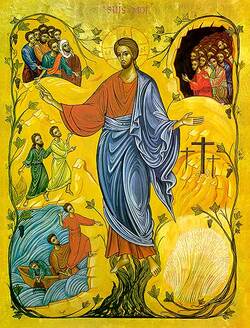 Scripture Reading: Jonah 3:1–10 | Psalm 62:5–12 | 1 Corinthians 7:29–31 | Mark 1:14–20 Jesus came to Galilee, proclaiming the good news of God, and saying, “The time is fulfilled, and the kingdom of God has come near; repent, and believe in the good news.” How many of us actually like disruptions? I don’t just mean surprises… something new or unexpected. I mean those moments of interruption… when our plans are suddenly derailed. When we’re faced with having to make immediate changes, and do things differently. For many of us, the fact that we’ve started having Church online is a prime example of this kind of disruption. For close to two hundred years people have gathered in person at St. Luke’s Church to worship God together, and to grow as disciples of Jesus. And now here we are, worshipping in our own homes, while some of us are using the internet to join together for Morning Prayer. What a strange disruption to the ways we are used to being a Church family… though I’m grateful that there are still some ways for us all to stay connected. Of course, this year has been full of far more difficult disruptions. The changes and complications that the COVID-19 pandemic has brought about for people all over the world has been simply staggering. In basically every facet of life, things keep on getting disrupted… and we keep on having to adjust, and re-adjust our plans. Small wonder most of us are getting sick of disruptions, and are longing for a time when everything finally settles down. But what happens when disruptions turn out better than we could have imagined? What happens when they turn out to be a gift; a channel of God’s grace? Our Scripture readings today, from the book of Jonah, and the Gospel of Mark, introduce us to some major but blesséd disruptions in the story of God. First, we heard an excerpt from the story of Jonah: The Israelite prophet entrusted with a message from the Living God. “Go at once to Nineveh, that great city,” the LORD commissions Jonah, “and cry out against it; for their wickedness has come up before me.” (Jonah 1:2) Now it’s no surprise that God would call a prophet to bring this kind of message. After all, the Old Testament is full of divine warnings against human wickedness. What’s strange is that, rather than send the prophet to warn his own people, God’s sending him to warn his enemies. To go to Nineveh, the great city of the Assyrian Empire… near the modern city of Mosul in Iraq. This was an ancient superpower, and in the time of Jonah, the people of Nineveh were a terrible threat to the kingdoms of Judah and Israel. As the story goes, this strange mission was too ‘out there’ for Jonah. Instead of obeying the call, the prophet simply runs away. He boards a boat to take him as far from Nineveh as possible. Though he was called to be a prophet, speaking on behalf of the Living God, this mission contradicted Jonah’s idea of what should really be done. To follow this call would completely disrupt Jonah’s life: it would mean completely re-arranging his purpose and priorities. And so he runs… right into a bigger disruption: a terrible storm. Eventually, Jonah ends up being tossed into the sea, but instead of drowning, he gets swallowed by a giant fish. While in that watery prison, Jonah cries to the LORD for mercy. He has no other hope. He’s caught by this fish, with no way to free himself. But the LORD hears his desperate prayer, and spares him… causing the fish to spit him up on to dry land. Jonah, this disobedient messenger of God, has his life completely disrupted, and totally turned around… and is given another chance to deliver the message to Nineveh. All that’s the backstory to our reading this morning, when we heard about how Jonah proclaimed Nineveh’s coming doom. Did you notice the tone of his message? “Forty days more,” he said to them, “and Nineveh shall be overthrown!” He offers them no hope. No way out from the coming judgment. As far as Jonah was concerned, he had come to bring bad news. But the people of Nineveh believe the message he brought to them. They took his words to heart, and this city, renown for its cruelty and its wickedness… does the unthinkable: it actually repents. The Ninevites drastically disrupt their lives and respond to the divine judgment… with the hope that God just might be merciful, and forgive their evil ways. And as it turns out, much to Jonah’s utter dismay, the LORD had mercy on them too, and spared the entire city. God sent his servant Jonah to disrupt the wickedness of Israel’s dreaded enemies. To turn their lives around and bring them all into His mercy. Jonah fought against this mission every step of the way, and even got furious with God after Nineveh repented. But God’s mission of mercy was greater than Jonah could imagine. Reaching out to the hopeless to rescue even his enemies. Switching gears again, let’s jump forward to the Gospel of Mark, where Jesus, the Son of God, has just come up from the waters of Baptism, but instead of fleeing God’s call on his life, Jesus heads out into the desert, facing temptations in the wilderness for forty days… the same timeline that Jonah gave Nineveh before its coming doom. Just like Jonah, Jesus also came proclaiming a disruptive message: God’s kingdom has come. Turn around repent, and believe in the Good News. This message sums up, for Mark’s Gospel, Christ’s entire ministry. Everything He’s up to… everything Jesus will say and do… is about the coming of God’s reign, God’s good Kingdom at last. The Kingdom of His mercy… of His deliverance. Unlike Jonah, Jesus had come with truly Good News to share. But it also meant the time of reckoning had come for all other kingdoms… that all other claims of allegiances are now being called into question. Once again, the LORD has sent a disruptive messenger: One whose word and life requires that we offer our response. The theologian, William Abraham, describes the disruptive message of Jesus like this: “It is not the announcement of some generic theism, or a call to moral renovation, or an offer of celestial fire insurance for the life to come, or a network of pious platitudes about how to become more religious. The gospel is the arrival of God’s new order in the world. Long prepared for and eagerly awaited in Israel, it is the good news that God’s rule has arrived. To be sure, this will be bad news for those who want to be in charge of the universe, and they will not stand by and abandon their role of running the world. Yet the truth is simply this: God’s sovereign reign has drawn near in human history, and in the end nothing will prevent its being established. This remains the heart of the gospel for all time.”[1] So how does Mark tell us God’s Kingdom starts to take shape here at last? By the Son of God calling to Himself a handful of fishermen. Two sets of brothers, Simon and Andrew, and the sons of Zebedee, James and John, are found by Jesus at the sea of Galilee. If the world of prophets and kings feels pretty foreign and remote to us, the lives of these four men might be a whole lot more familiar. Here are ordinary folk: hard-working laborers, focused on keeping food on the table, and their families provided for. And yet, when Jesus calls each of them to come and follow Him, these ordinary people become caught up in the Kingdom of God. Their old lives were disrupted in an instant by the call of Christ. Against custom and convention, against the obligations of family, and business, they heard the voice of the King of Kings, and they obeyed His summons… leaving behind everything that would keep them from His side. We know they faced all sorts of challenges as they followed Him… for the way of God’s Kingdom would one day lead to the cross. Because unlike Jonah, Jesus embodied God’s merciful love for this lost and wicked world, freely laying down His life to disrupt and destroy the power of sin and death; to turn our lives around and bring us back to the LORD, so that we all might share in His Kingdom of mercy and hope forever. Through His death and resurrection, Jesus Christ has changed everything… and He’s calling us to follow Him into God’s brand New Life. How is the message of God’s kingdom disrupting our lives today? What ways are we being called to respond to God’s reign? Perhaps we are being called to set aside some form of wickedness… some sin that keeps a hold of our hearts, but leads us away from God’s light? Perhaps we are being called into a whole new vocation… a new way to embody the Good News of Jesus Christ with our life? This could be a call to Church ministry, as a layperson or ordained. This could be a call to a different form of serving God’s Kingdom in the world: in the workplace, in our neighbourhoods, in our homes. Perhaps we are being called into deeper fellowship with God? Called to set aside the distractions that tie up all our energies, and intentionally share more of our day to day lives with Jesus. In prayer, in reading His word, in moments of worship, and acts of mercy, we are all being called to follow our Saviour and share in His Good Kingdom… not simply on Sunday mornings, but as long as we draw breath. Until His Kingdom fully comes on earth, just as in heaven. So may the Holy Spirit help us to hear and respond to God’s call in our lives. May we place our trust in the Good News of Christ, and all He’s done. May we continue to turn to Him with our whole heart and life, opening us up to share His hope and mercy with those all around us. And may we follow Him however disruptive it may be, confident that He’s always leading us into God’s good Kingdom. Amen. [1] William J. Abraham, “Third Sunday after the Epiphany, Year B,” in The Lectionary Commentary: Theological Exegesis for Sunday’s Texts, Volume Three, ed. Roger E. Van Harn (Grand Rapids, MI: Eerdmans, 2001), 174. Our service of Morning Prayer, Bulletin, and Sermon this week can be found here: Our All-Ages Song for Epiphany can be found here: And our other Songs can be found here:
Scripture Readings: 1 Samuel 3:1–20 | Psalm 139:1–18 | 1 Corinthians 6:12–20 | John 1:43–51
“You will see greater things than these.” Today we celebrate the second Sunday of Epiphany: a season of revealing… of finding & being found. Reminding us that the story of God often involves surprises, inviting us to listen and look for where He’s at work even now. Our first reading begins with a pretty bleak assessment: “The word of the Lord was rare in those days; visions were not widespread.” (1 Sam 3:1) Hundreds of years after Israel had been freed from slavery in Egypt, and had been brought by God to the Promised Land, Canaan, the people were again in a state of spiritual unease. There’s a sense in these words of a growing separation between humanity and God, even between the LORD and His chosen, covenant people. But in this time when God’s voice seemed distant and remote, we are introduced to Samuel, who would one day become one of Israel’s greatest prophets, but who was now simply a boy serving the High Priest, Eli, at the Tabernacle, the sacred Tent which was, before the construction of the Temple in Jerusalem, the place signifying the Living God’s presence among His people… the place where heaven and earth were to intersect, so to speak. The High Priest alone, as the representative of all of God’s people, was only occasionally to go in and out of the Most Holy Place, the heart of this sacred Tent, to meet with God on Israel’s behalf… to ritually uphold their sacred connection, their covenant relationship. It was a place where the goodness and holiness of the Living God was to be encountered, and spread out through His people into the world. But in those days, the Tabernacle had become a place where selfishness and sin had taken root, and had all but taken over. Eli’s sons, who served as priests, had grown wicked and corrupt; they were stealing from God and His people by seizing much more than the share from the sacrifices set aside for them, as well as sleeping with the women who came to serve at the Tabernacle. These sons of Eli, set aside to be holy priests of God, had let their greed and lust distort the core practices of Israel’s covenant relationship with the LORD. They had ceased to be agents of God’s holy love and mercy, and instead served only their sinful desires, causing all kinds of grief. Especially for their father. Although he was disturbed by the conduct of his children, Eli failed to do anything to stop their outright wickedness. He let them carry on corrupting the sacred role they had been entrusted with, and harming the people under their spiritual care. The ones who were supposed to be faithfully leading God’s people had lost themselves in sin, threatening to lead all the people astray as well. But at this time when it seemed God’s voice was absent, He finds Samuel. The LORD calls out to this small, confused young boy, and entrusts to him the true but challenging message for Eli: That his family’s unfaithfulness would no longer be ignored. The time had come for them to face the consequences of their corruption. God would find another way to make His purposes and presence known. “I will raise up for myself a faithful priest,” the LORD made known to Eli, “who shall do according to what is in my heart and in my mind. I will build him a sure house, and he shall go in and out before my anointed one forever.” (1 Sam. 2:35). Through a surprising, small messenger, God makes His purpose and presence known: Even if those entrusted with caring for the Tabernacle, the place where heaven and earth came together, failed miserably, the LORD Himself will find a way to be among His people… to reveal Himself to them, that they may live with Him always. Who this ‘faithful one’ will be, of course, is yet to be revealed. But that question points forward, through the centuries, to our Gospel passage this morning. Our reading from John’s Gospel depicts a scene full of discoveries: It starts off by telling us Jesus, just beginning His ministry, finds a man named Philip from Bethsaida, calling to him: “Follow me.” The next thing that we know, Philip is running to find his friend Nathaniel, excitedly exclaiming that they had found the Messiah: “We have found him about whom Moses in the law and also the prophets wrote, Jesus son of Joseph from Nazareth.” Nathaniel responds to his friend’s message about the news of Jesus: “Can anything good come from Nazareth?” Before we toss Nathaniel’s words aside as overly cynical, how often do we, or those we love and respect, respond likewise? Sickened by the dishonesty they have seen in politics, church, or other aspects of community life, how many have given up on expecting ‘anything good’ to come from them? We too live in a time when it seems there’s a strong sense of separation between our day to day existence and the presence and purposes of God… and so many of us give up looking or listening. For his part though, Philip doesn’t start to argue with his friend. He simply says: “Come and see.” He invites his Nathaniel to take a step, to ‘Come and find out for yourself.’ And as he does, Nathaniel finds much more than he expected. It’s worth noting that Jesus doesn’t condemn Nathaniel for his initial hesitation… in fact, He commends him! “Here is truly an Israelite [He says,] in whom there is no deceit!” Unlike the sons of Eli, Nathaniel was not playing games with God. Confused as to how this man from Nazareth knew so much about him, Jesus tells him plainly: “I saw you under the fig tree before Philip called you.” Note: Before Philip went to find his skeptical friend and invite him to come and see the Messiah, Jesus already saw Nathaniel clearly… He knew him inside and out. Though he may have felt alone underneath that fig tree, he was not unseen or forgotten. He was not lost to the eyes of God. And that’s enough for Nathaniel. At these words alone, he goes from cynic to convinced in the blink of an eye. But Jesus has more in store for him… far more to reveal, not only to Nathaniel, but to us as well. When Nathaniel exclaims: “Rabbi, you are the Son of God! You are the King of Israel!” 50 Jesus answered, “Do you believe because I told you that I saw you under the fig tree? You will see greater things than these.” 51 And he said to him, “Very truly, I tell you, you will see heaven opened and the angels of God ascending and descending upon the Son of Man.” Now what in the world is he talking about? Clearly Jesus (and the author of John) thinks this is an important revelation, something of significance we’re meant to understand. Here’s another place where a healthy knowledge of the whole Scriptural story comes in handy. The Bible is full of interconnecting images and themes, all meant to weave together as God’s way of revealing Himself to us. In the case of Christ’s cryptic words about the angels of God ascending and descending on the son of man, the theologian Leonard Klein can help shed some light on things: “When Jesus promises Philip and Nathanael a fuller vision, “greater things than these,” he alludes to Jacob/Israel’s dream of the angels ascending and descending the stairway to heaven [See Genesis 28:10-22]. The original event guarantees the unworthy Jacob’s place in the life of Israel and in the ancestry of Jesus. And as that place became holy, Bethel (which means “house of God”), so Jesus himself is now the dwelling place of God. The angels will ascend and descend upon him as they did upon Bethel. The reference is subtle but not obscure; for Christianity Jesus is the holy place. As God dwelt at Bethel and ultimately in the temple at Jerusalem, so he dwells in the Word made flesh and wherever the Spirit makes Christ present in the church.”[1] Or as N.T. Wright puts it: “When you’re with Jesus, it is as though you’re in the house of God, the Temple itself, with God’s angels coming and going, and God’s own presence there beside you.”[2] The surprising revelation here is that Jesus is not merely someone with deep insight, or supernatural knowledge, He is Himself the holy meeting place of heaven and earth. He is that ultimate faithful priest the LORD promised Eli would one day come, who would completely embody the heart and mind of God in the world, standing faithfully on behalf of His often-faithless people… and laying down His life on the cross as the perfect sacrifice, dying in order to open up the way of life for the world. Despite how far-off God may feel, in Jesus Christ He is truly with us, and we can be with Him. Through His holy word and sacraments, in times of prayer and service, when faced with strong temptations, doubts, or even failures, the Living God has opened up the way through His beloved Son for us to hear and heed His voice, finding new life in Him, who first loved and found us. And like Samuel and Philip, when we answer the call of the LORD, and draw near in faith, may He speak through us, through our words and lives, to draw others to Him too. Epiphany reminds us that God’s story is full of surprises; and that He works in surprising ways, through surprising circumstances, and simple people like us. May the Holy Spirit open our hearts and eyes to see the “greater things” of Christ at work today, and help us to faithfully make His presence known in our world. Amen. [1] Leonard R. Klein, “Second Sunday after the Epiphany, Year B,” in The Lectionary Commentary: Theological Exegesis for Sunday’s Texts, Volume Three, ed. Roger E. Van Harn (Grand Rapids, MI: Eerdmans, 2001), 487. [2] Tom Wright, John for Everyone, Part 1: Chapters 1-10 (London: Society for Promoting Christian Knowledge, 2004), 19. Our service of Morning Prayer, Bulletin, and Sermon this week can be found here: Our All-Ages Song for Epiphany can be found here: And our other Songs can be found here:
Scripture Readings: Genesis 1:1–5 | Psalm 29 | Acts 19:1–7 | Mark 1:4–11
And just as he was coming up out of the water, he saw the heavens torn apart and the Spirit descending like a dove on him. And a voice came from heaven, “You are my Son, the Beloved; with you I am well pleased.” (Mark 4:10-11). A lot has happened in one week, hasn’t it? This past Wednesday, as the whole world is aware by now, an angry, violent mass of people, goaded on by the President, stormed the US Capitol building to try and disrupt the process of finalizing the recent US election results, in what many are calling an outright act of insurrection. Much can, and has been, said about this tragic and fatal event, though its long-term implications are not yet all that clear. But there is one image from Wednesday in particular that caught and held my attention: in the midst of all the violent tumult, some rioters were waving flags that read “Jesus Saves.” Seeing this, I felt sick. Of course, these words are true. Absolutely true. But to see them being identified so blatantly with the cause of violent political outrage, where lives were being threatened and lost in a chaotic struggle to simply seize power… it made me wonder (not for the first time) what kind of witness this kind of behaviour offers to a watching world. Is this how Christ’s salvation is to take concrete shape on earth? Anger and rage let loose upon those seen as enemies? Demanding that our will be done, or that their blood be shed? Last week was certainly not the first time we have seen our Lord’s precious name drawn into deeply disturbing actions… but it is one that should still give us pause, and perhaps lead us to ask ourselves what it really means to be a Christian. What does being a faithful disciple of Jesus Christ look like today? And what is it that drives this unique way of life forward? Our Scripture reading today from the Gospel of Mark tells of the baptism of our Lord, Jesus Christ. As we reflect on this part of our Saviour Jesus’ sacred story, we may be able to find our bearings again when it comes to the Christian life; both what it truly looks like, and what keeps it going. Our passage takes place right at the start of the Gospel of Mark: After announcing that his book is about “the good news of Jesus Christ, the Son of God” (Mark 1:1), Mark introduces John the Baptist as a prophetic messenger preparing the way for the LORD’s coming salvation, and tells us that John was calling God’s people to be baptized as an act of faithful repentance… of turning away from their sin, and turning their lives to the LORD. And we hear his message was resonating with a lot of folks: people were coming from all over Judaea, and from Jerusalem, confessing their sins, and seeking a new start on God’s path. But as we know, John knew there was more of the story of God’s salvation on it’s way. He knew there was one who was coming after him, who would baptize God’s people, not with water, but with the Holy Spirit of God, flooding them with God’s life-giving, and life-changing presence. And here, just 9 verses in to Mark’s Gospel, we meet Jesus of Nazareth, as He comes to John in order to be baptized as well. Up until now, Mark has only told us two things about Jesus: He is the Son of God, and yet He has come to be baptized alongside offenders seeking to repent. He comes from the Almighty Holy One, and yet comes to stand with sinners. This might seem like a contradiction at first. How can these two go together? Aren't the good and the bad to be kept apart? Isn't it "us against them"? And yet as Mark’s Gospel unfolds, and the whole story of Scripture brings to light, we see that this surprising movement is at the heart of the Good News all the way through. Jesus’ baptism is the continuation of His astounding descent, His mission of incredible mercy, coming not to condemn, but to reach out and save sinners. Though He was eternally at-one with God the Father and the Holy Spirit, in His baptism Jesus identifies Himself with those alienated from God… with those exposed as unrighteous… as lawbreakers… as enemies. He places Himself alongside those who stand in desperate need of forgiveness… taking up the cause of those who need their lives completely turned around. The Christian life begins with Jesus drawing near to us in our sin, taking up our cause, and taking our place... to save us. In humbly stepping into the water, we see that Jesus doesn’t save from a safe distance… He steps right into our mess. Right into the flood, in order to bring us out again on the other side. Because that, of course, is the whole point: Not simply drawing near to be with sinners, but drawing them out of the waters again! Drawing them out of the darkness and into the light of life. So often we forget that the salvation of God is meant to bring about some real changes in us, not simply to offer us comfort, or confirming our old habits. Yes, the Son of God came to draw near, but as the cliché goes, he doesn’t leave us there. He comes to rescue us, and realign us to share in God’s life. N.T. Wright has a good way of expressing this point: “The meaning of a royal pardon is not simply that the prisoner enjoys a good feeling of innocence restored, but that he gets out of jail.”[1] Or as St. Paul puts it, in his second letter to the Corinthians (5:21), “For our sake he made him [Jesus] to be sin who knew no sin, so that in him we might become the righteousness of God.” Salvation entails our lives being filled with God’s own righteousness… undoing all the darkness within us, and setting us free to share in His light. But we know for this to happen, for God’s righteousness to truly take hold of our hearts, it was going to cost the Son of God all that He could give. In His baptism, Jesus prefigures and points towards His ultimate act of redemption: His suffering and death upon the cross. Immersed in death’s shadow for our sake and for the sake of the world, Jesus endured the worst of what we sinners had coming our way. Ending our indebtedness through His great sacrifice. And in rising again from the grave, Jesus has opened up the way for God’s New Creation, New Life, to flood into our lives… to fill us up with the righteousness, with the goodness of God, transforming us more and more each day to be more and more like Him. In His baptism, first in the waters of Jordan, and finally in His death on the cross, we find Jesus has come to truly rescue us from our sin. Jesus saves us by gaining our forgiveness, and by sharing God’s holy life with us… freeing us to be God’s true children today. Upholding all of this talk of salvation is one more vital point to consider, one which sheds light on what it is that drives the Christian life: that is, God’s holy love. Love is what led Jesus to step into the waters in order to rescue even His enemies. Love is what led Him to give His life to bring God’s New Life to us. And love is what Jesus offers us now: the love of the Triune God… Father, Son, and Holy Spirit… drawing us deeper into His divine fellowship, and reaching out with that same love through us into the world. Jesus was not motivated by fear, or hungry for power, or seeking glory for Himself, or chasing after revenge. No, what led Him into the waters, and ultimately onto the cross was the love of God He shared in, and shared for God’s lost creation. Coming out of the water, we’re told the veil between heaven and earth was opened up for an instant. The Holy Spirit descended in peace on Jesus, like a dove, and the Father’s voice proclaimed: “You are my Son, the Beloved; with you I am well pleased.” From beginning to end, Jesus was filled with and led by the holy love of God, and this is what is to fill and lead His disciples today. Christ’s baptism reveals the Living God’s heart of saving love: drawing near to us, drawing us near to Him, and flooding us with His holy love. This is the beginning of discipleship, of devoting our lives to following Jesus: trusting in His saving and life-changing love, that it may flood our lives, and lead us forward, every step of the way. All we who claim to be Christians are called to walk “just as He walked” (1 John 2:6), to follow our Lord into the New Life God is bringing about. We are not free to give in to the darkness anymore… to the hatred, fear, prejudice, self-righteous indignation, or apathy we see at work all around us… but we're called instead to strive to stay always in the light of Jesus, our one and only Saviour, who loves us and gave Himself for us, and for this world, which still stands in such need of His saving love. So in this turbulent time, may we resist the strong temptations on the one hand, to go along with the darkness, and on the other, to sit back and condemn as though we did not need forgiveness and mercy ourselves. May we remember our Saviour, Jesus, who draws near even to save sinners, and pray for the healing of hearts, and for His reconciliation to reign. May we place our faith in Him, who saves us through His own shed blood, and seeks to draw us all into the New Life of God. And may the Holy Spirit fill us with the holy love of God, so that all that we say and do faithfully proclaims the Good News of Jesus our Lord. Amen. [1] N. T. Wright, Twelve Months of Sundays: Reflections on Bible Readings, Year B (London: Society for Promoting Christian Knowledge, 2002), 19. CHORUS:
God came to us In Jesus Born a child like me God came to us To save us To set the whole world free We were once in darkness So God sent us a Light God came to us in Jesus To make the whole world bright! CHORUS: Because God loved us so much He gave to us His Son God came to us in Jesus To rescue everyone! CHORUS: Now everyone together Can be God's family God came to us in Jesus To set His children free! CHORUS: Today we celebrate the Baptism of Jesus Christ our Lord; as the Son of God began His mission of mercy by standing in the place of sinners, in order to bring us God's salvation in all it's fullness. Our service of Morning Prayer and Sermon this week can be found here: Our All-Ages Song for the Season of Epiphany can be found here: And our other Songs for this week can be found here: Scripture Readings: Isaiah 60:1–6 | Psalm 72:1–7, 10–14 | Ephesians 3:1–12 | Matthew 2:1–12
What does the coming of Jesus Christ reveal to us? What is the coming of Jesus Christ meant to reveal through us? This coming Wednesday, January the 6th, is the Feast of Epiphany: the manifestation of Jesus Christ as much more than He appears to be. Epiphany reminds us that the small, Jewish boy whose birth we just celebrated at Christmas, is in reality the Son of God, the Saviour King… not only of Israel, but of the entire world. Epiphany opens our eyes to just how big the Good News really is. And yet, so much of Epiphany’s shocking story has largely lost it’s impact. Today, we heard from Matthew’s Gospel an old familiar story: some wise men, magi, from the east, following a star, bring gifts of myrrh, frankincense, and gold to the child, Jesus. It’s a scene many of us have seen in countless pageants, or Christmas cards… and so it can be pretty easy to lose out on the sense of surprise, or even shock, that this story actually has to offer… how easy it is to take for granted the wonderful things the Living God is revealing, to, and through, His people today. So what does Epiphany, the appearing of Jesus Christ, reveal to us? For starters, it reveals the amazing humility of God. In stark contrast to King Herod… and beyond him to the Emperor in Rome, the arrival of God’s Son did not conform to normal notions of power. He was born, not in the predictable centre of political influence, the holy capitol city of Jerusalem, where the wise men assumed the King of the Jews would be found, but rather in Bethlehem, in the ‘city’ of David’s birth… a name which reminds Matthew’s readers that centuries before, the LORD chose a poor, overlooked shepherd-boy to become the greatest King of His covenant people, Israel, and promised that one of David’s offspring would one day become the King of all Kings. And so now, in David’s city, God’s Son came to a young peasant couple, living on the distant edge of the Roman Empire, about as far from fame or prestige as imaginable. Epiphany shows us that the Living God is not playing by the rules of the world… the rules of self-serving pride and power. No, God is actively overturning our common expectations of how things are done. God’s Son will be a King unlike any other. Another surprising revelation that Epiphany has in store for us is the radically welcoming grace of the Living God. This grace is most clearly seen in the coming of the wise men, from the East, which is meant to stir up our imaginations about where the rest of Christ’s story is headed. N.T. Wright makes this helpful point: “The arrival of the ‘Magi’ (that’s the word Matthew uses for them; it can refer to ‘magicians’, or ‘astrologers’, or experts in interpreting dreams, portents and other strange happenings) introduces us to something which Matthew wants us to be clear about from the start. If Jesus is in some sense king of the Jews, that doesn’t mean that his rule is limited to the Jewish people.” [1] After all, these magi were Gentiles… that is, non-Israelites, yet they were drawn to honour and worship the newborn ‘King of the Jews’. While King Herod and his scribes, who were supposed to be leading God’s people, were missing the moment of the coming of the LORD’s long-awaited Messiah, those from far off, both literally and spiritually, were being drawn near… foreshadowing the end of Matthew’s Gospel, when the resurrected Jesus would send out His apostles to “go and make disciples of all nations.” Epiphany reveals to us that what God is doing in Christ, God is doing for all people, not just a few. The LORD is drawing all people to Himself through Jesus Christ His Son. He is the King of the Jews, but His Kingdom is open to all. Which leads to one more revelation Epiphany has for us: The joy of God. We might think something as sacred as the start of God’s rescue mission must be solemn and serious, especially considering all of the obstacles that need to be overcome. So often when it comes to matters of faith, or the Church, it’s easier to think in terms of duty than delight. But we are told today that the wise men were filled… were overwhelmed with joy when the star stopped, leading them to Jesus at last. And along with all the sacred seriousness of Christ’s arrival, and in the midst of all the difficulties and dangers, the coming of God’s Son is still the source of profound joy… of a deep sense that in Jesus, the world is being put back on track… that beyond our wildest dreams, God’s New Day is dawning. Epiphany reveals to us the joyfulness of God’s New Life, the joy which he shares with the world through His Son. There’s so much more Epiphany has to show us, I’m sure… but for today, perhaps these three are enough: The coming of Christ reveals to us the humility of God, the welcoming grace of God, and the gift of joy God is offering in Jesus Christ. But the question remains: what is the coming of Christ meant to reveal through us? In the light of Epiphany, was is our role to play? As members of the Church, after all, we are being drawn into Christ’s story: sharing in His Kingdom, His mission, and His New Life. Again, there are many ways we could answer this question, but I think these same three things are a good place to start: Epiphany shows us that God desires to make His humility, His welcoming grace, and His joy manifest in the world through us, through the Church, the body of Jesus Christ, His Son. How does our life display God’s humility? Are there places where we let ourselves be guided (or blinded) by pride? Are we stuck playing by the rules of the world around us, or are we willing to set our egos aside and let God have His way, even if that means letting Him turn our lives upside down? So often we can think that God won’t want to use ordinary people like us… but Epiphany reminds us God loves to lift up the humble… to work within the lives of those the world thinks nothing of, in order to share His Kingdom in the most surprising ways. So let us pray: LORD, let Your humble Spirit shine through us, and keep us from the snares of self-doubt, and selfish pride. How does our life make evident the LORD’s welcoming grace? Are we consciously or unconsciously setting up barriers between us and the people God is longing to draw to Himself? Are we eager to open our doors and ourselves to whomever God brings our way? Are we willing to bring the Good News of Jesus out of our church and into our neighbourhood? Our relationships? Our everyday lives? It’s easy to keep the message of the Gospel to ourselves, but Epiphany reminds us this message is really meant for all. So let us pray: LORD, let Your welcoming grace shine through us, and keep our hearts from growing cold from fear, and prejudice. How does our life bring the Living God’s joy to birth? Not through a forced smile, but a true sense of delight in what God is up to. Are we able to let the exciting, world-changing significance of the Good News of Jesus soak into our hearts, and shape the way we see and live out our own stories? So often we can get so distracted or discouraged, and lose sight of the wonderful ways God is still at work in our world… and the hope we have been given through Jesus Christ, our King. So let us pray: LORD, let Your joy abide in us always, and keep us close to You the source of all true delight, as we follow Your Son Jesus to Your everlasting Kingdom. And may the light of Epiphany, that is, the light of Jesus Christ, shine on us, and shine through us, forever. Amen [1] Tom Wright, Matthew for Everyone, Part 1: Chapters 1-15 (London: Society for Promoting Christian Knowledge, 2004), 11. Today we celebrate the Feast of Epiphany, the revealing of Jesus Christ as the Son of God, sent as the Saviour King, not only for Israel, but for all the world. Our service of Morning Prayer, Bulletin, and Sermon for this week can be found here: And our Songs for this week can be found here:
|
Rev. RObRev. Rob serves as the Priest-in-Charge at St. Luke's Gondola Point, and as the School Chaplain at Rothesay Netherwood School Archives
June 2024
Categories
All
|
|
5 Quispamsis Road, Quispamsis NB, E2E 1M2
Mail to: 12 Quispamsis Road, Quispamsis NB E2E 1M2 |
Contact Us
Parish Phone: 506-847-3670 | www.stlukesgp.ca | www.facebook.com/StLukesGP/ Rev. Rob: 506-608-1772 | [email protected] |
Proudly powered by Weebly


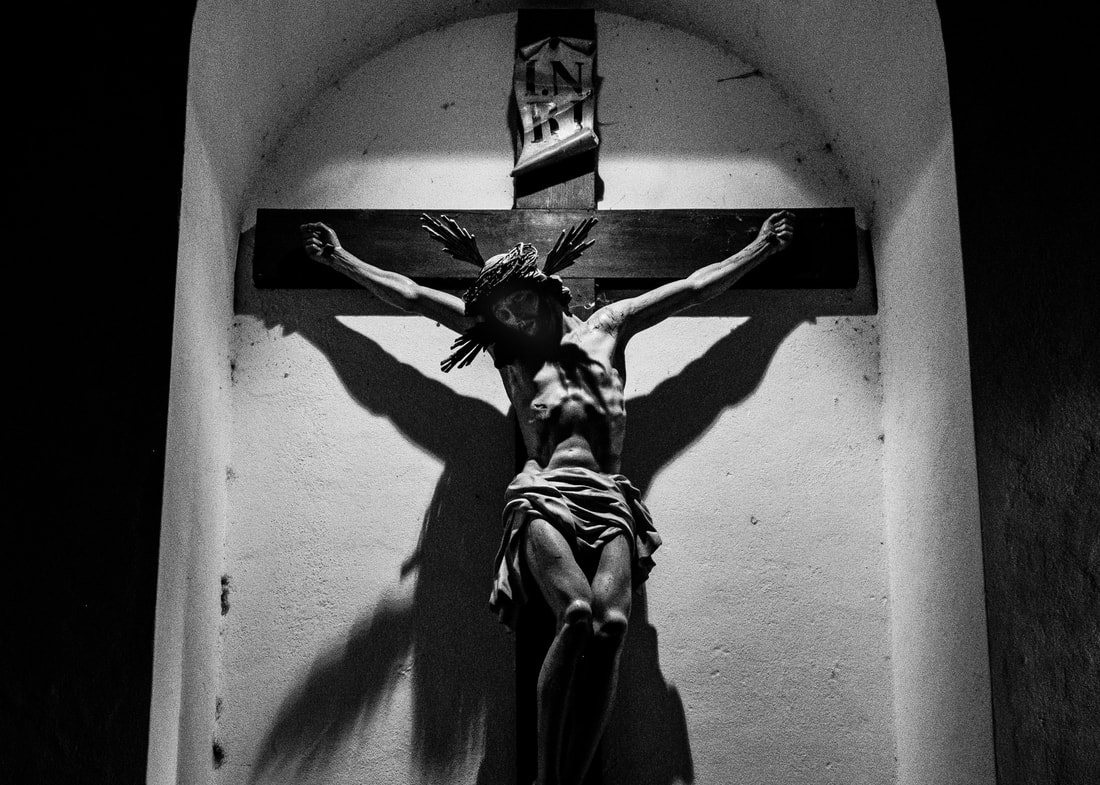
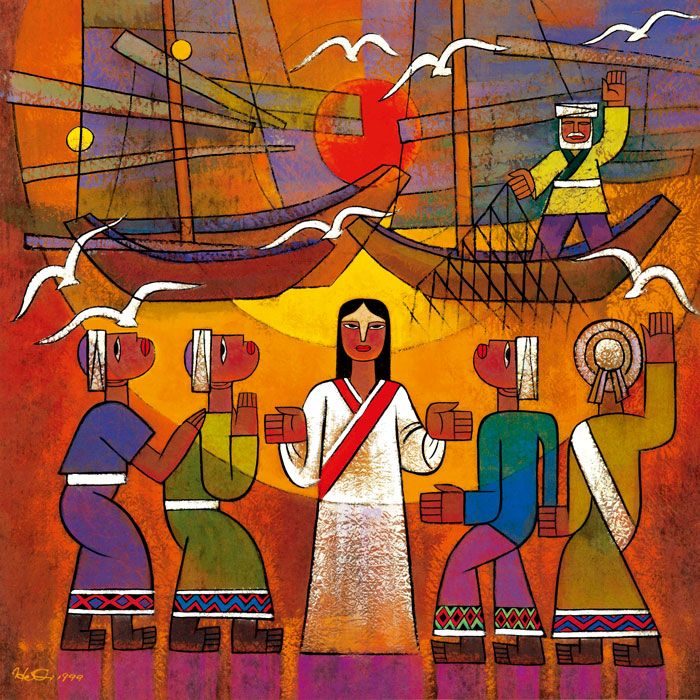
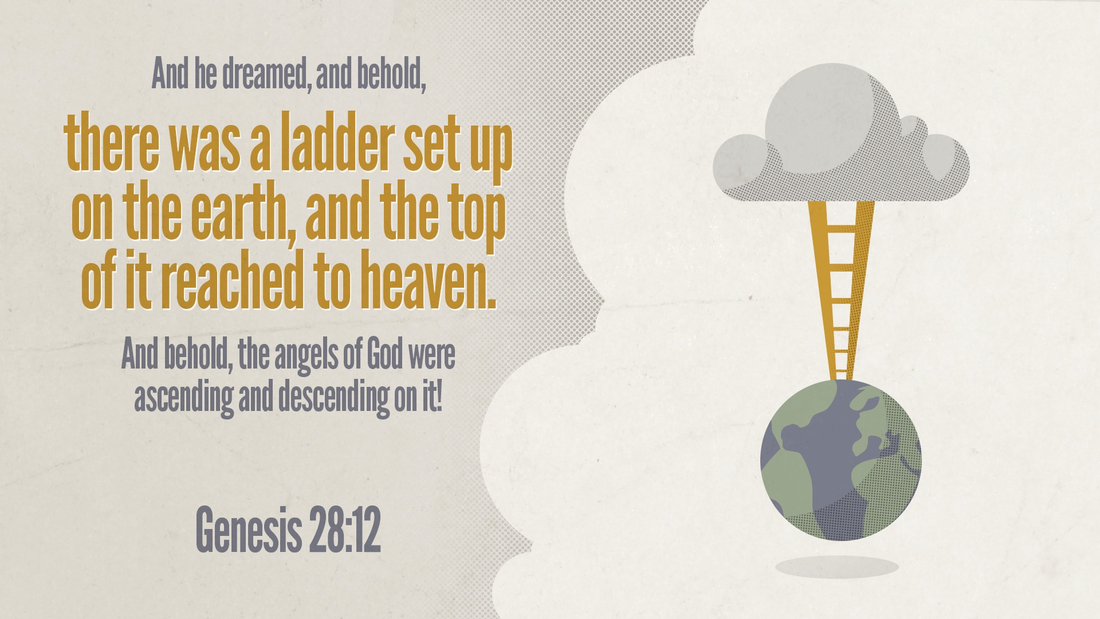
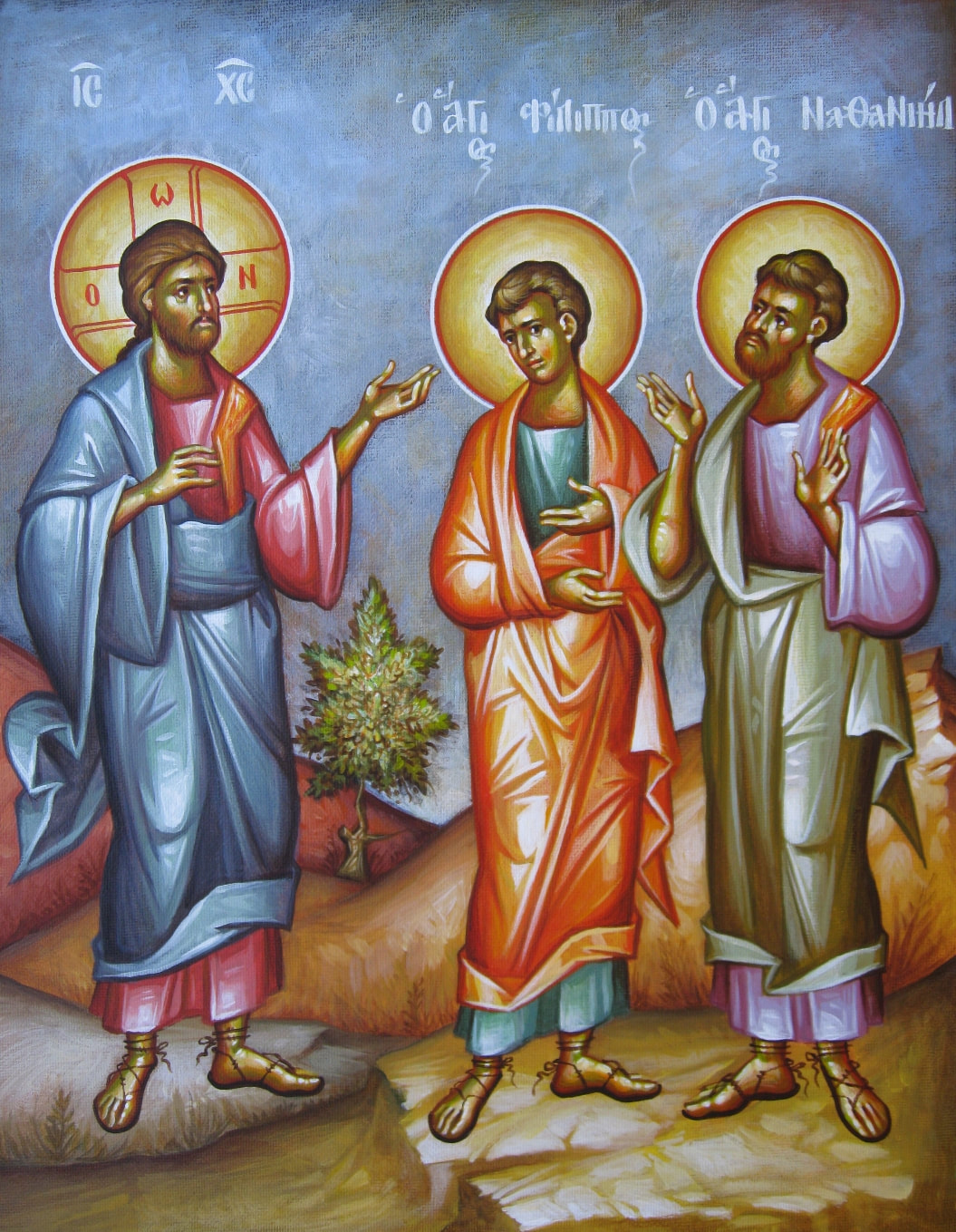

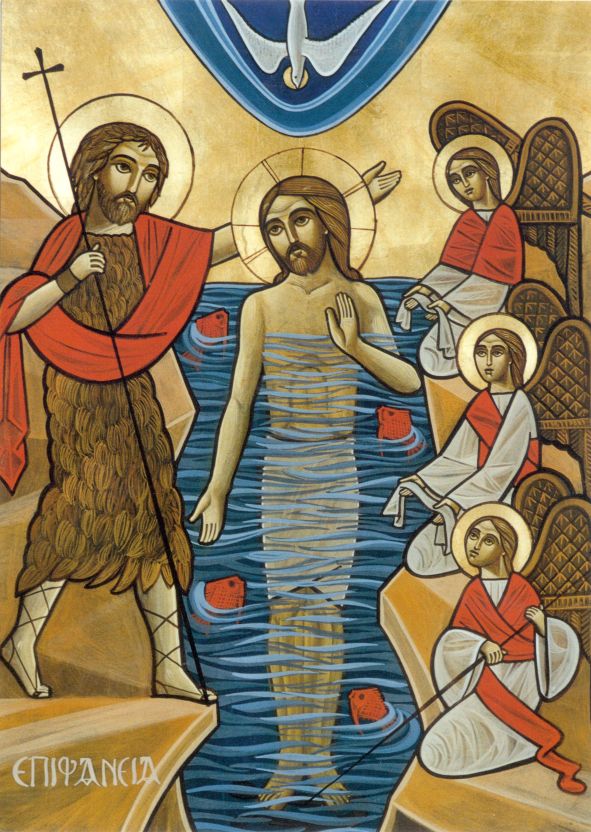


 RSS Feed
RSS Feed
